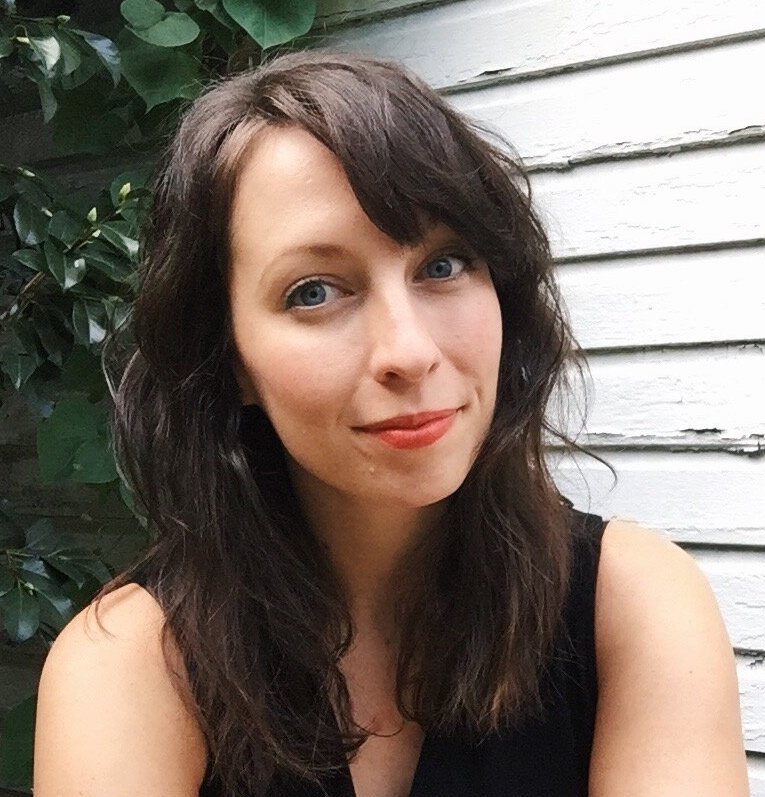
How I Coped With Feeling “Touched Out” As A New Mom
At my six week postpartum appointment my OB/GYN pronounced me “Ready for sex!” I stared at her in a stunned kind of stupor until the silence was finally broken by a maniacal, unhinged laughter you might attribute to a cartoon villain. I was somewhat surprised to learn a moment later that this Cruella DeVil cackle was coming from my own mouth.
Sex? Sex? As in, my husband touching my naked body? Putting parts of his body inside of the canal that just produced a human baby? Touching the nipples that I latched and unlatched said baby to dozens of times a day, before smearing them in ointment? Do you not realize that there has been a coup here? “No, thank you,” I finally said. But secretly, I was terrified: Didn’t I love my husband and want to touch him?
“Didn’t I love my husband and want to touch him?”
I was lucky to have an incredible doula who was available to me postpartum, and I texted her about what I was experiencing. “You’re touched out,” she wrote. Olivia was a mother of six, and I trusted her completely. “Look, until you start breastfeeding, you’re only used to having your nipples sucked intermittently, but now they’re in near-constant use. It’s a lot!” (Before I go on, dear reader, I ask that we allow a suspension of the compulsory comments on the beauty of motherhood and babies. I love my daughter; she’s amazing. Becoming a mother was also really hard, and we don’t give ourselves enough space to talk about that. But I am going to try here.)
I had never heard of the term “touched out” before. After some sleuthing online, I learned that it is an extremely common though little researched experience for women in the fourth trimester– or, the three months postpartum. I learned that while it’s often associated with breastfeeding, it can be triggered by any number of the daily activities required of childcare: the constant holding, the crying, the sticky residues on every surface, the bright inane noises of battery-operated baby toys, the tiny hands and feet that pinch and pull and push and swat, all day, every day. Not to mention the endless bodily fluids and stinking diapers. Parenting is an assault on all senses, so it’s no wonder that some mothers find themselves disinterested in being touched by anyone else. But for me, a former self-described hugger, I felt like the root of my aversion went deeper.
“I was unprepared for how parenting advice and conventional wisdom would erase my personhood.”
I was unprepared for how parenting advice and conventional wisdom would erase my personhood. Attachment and gentle parenting are popular styles that require (in this writer’s opinion) a dismissal of the caregiver’s preferences, basic needs, desires, boundaries, and personality. Couple this with the fact that my baby did not yet regard me as a person but as a location, and I felt myself fading away. I was my body, and my body was a place. And it was also, as the writer and academic Amanda Montei says, “transport, toy, chair, napkin, utensil, and comfort object.” All of the ways I was used to existing were obliterated by this new, heavy and enormous costume of The Mother.
I spoke with Montei, whose upcoming book “Touched Out” explores care and consent in contemporary motherhood. “American parenting advice is extremely child-centered, marketed primarily toward women, and most often completely divorced from the sociopolitical context in which we parent,” Montei said. “The concept of feeling ‘touched out’ speaks to a lot of feelings: anger, a lack of autonomy, overwhelm, overstimulation, confusion, isolation.” This, combined with an onslaught of momfluencers who make parenting look gorgeous and easy, and a 24-hour news cycle that makes it hard to want to leave the house, can compound an already overwhelming situation into a self-doubting black hole. “Fleeing is a protective measure,” said Montei. “For me, it was rarely my kids I was fleeing— it was the news, the advice, the internalized expectations, the conditions of parenting in America, and the persistent feeling that a lot of my life was pre-written.”
“American parenting advice is extremely child-centered, marketed primarily toward women, and most often completely divorced from the sociopolitical context in which we parent.”
Amanda Montei, Author of Touched Out
So why hadn’t I ever heard of this before? Why weren’t the moms sharing? I suspect shame is the culprit: shame over not performing motherhood “right,” of being afraid of admitting that we weren’t being a “good” one. Shame keeps us from potentially disappointing or upsetting someone else, but it also prevents us from getting support. And crucially, this kind of silence misses an opportunity to prepare and support new parents, potentially preventing them from continuing the cycle.
So here it is: when I was touched out, I was enraged. Not hangry, not PMS-y, not irritated. It was the wrath of a volcanic, Hulk-like god that would cause me to shake with fury. I wanted to flip tables, throw my dishes at the wall. More than once, I would put my baby down and walk away while she cried, setting a timer for a few minutes before I could go back and pick her up. For the first time in my life, I realized that those parents who accidentally shook their babies weren’t monsters, but just overtired, underprepared, and undersupported people who got caught in a horrific, life-altering moment. There’s a reason that sleep deprivation is used as a type of military tactical torture, and yet for some reason, we still expect new parents to continue to not only go to work but also to drive themselves there.
“The thing about rage is that it signals urgency: This was a problem that could not be put off.”
The thing about rage is that it signals urgency: This was a problem that could not be put off. My husband and I started identifying my triggers together, starting with noise. I ordered ear plugs that took the decibel level of daily life down several notches, and we started watching TV with the volume down low and the closed captions on. Prioritizing sleep meant sleeping in separate bedrooms after my baby dropped her night feeding. I started a Sunday morning practice that I keep to this day, where I get to be completely alone from wake up until noon (my husband gets Saturdays!).
I’d never had much of an issue with social media before, but as a new mom, I learned that scrolling is a kind of confrontation, an unrelenting flow of opinions and assertions that would sometimes fill me with feelings of inadequacy. So I unfollowed all the mommy and parenting expert accounts. “Caring for children is creative, skilled work, and of course we all want better tools on hand,” Montei said. “But if experts are not also talking about how parental triggers and struggles are connected to the alienation, loneliness, disempowerment, and exhaustion characteristic of American parenthood…then the advice just creates more unrealistic standards and demands.” Now, I selectively check in on a few parenting accounts, but it’s a conscious choice, not a scrolling confrontation. Mindless scrolls through my feed today only show flowers, art, celebrity crushes, and friends.
Becoming a mother is a developmental phase, in the same way that adolescence is: There are actual neurobiological changes, along with social adjustments and skill-building that have to be practiced and learned. One of the muscles I needed to build was not just the ability to recognize I needed space and to ask for it, but to also cope with the guilt I would feel when I took that space. We need to prepare each other, to speak more plainly and honestly about what we are experiencing, because we might find that we are not only not alone, but there is a community of people who have been through it, and who can help us navigate the more terrifying terrain.
When I asked Montei if she thought it got any easier as you gain experience as a mother, she said that matrescence is a phase that can last a lifetime. But to new mothers learning to navigate this space, especially when feeling touched out, she advises, “Recognizing that our reactions to the era we’re in are reasonable, rather than a mark of our failing, feels like the best first step.”
Stephanie H. Fallon is a writer originally from Houston, Texas. She has an MFA from the Jackson Center of Creative Writing at Hollins University. She lives with her family in the Blue Ridge Mountains of Virginia, where she writes about motherhood, artmaking, and work culture. You can find her on Instagram or learn more on her website.




